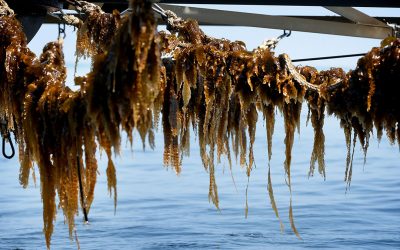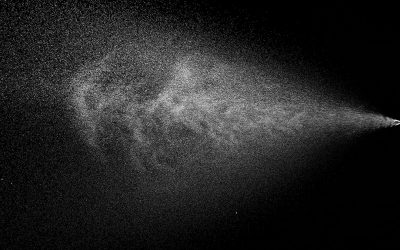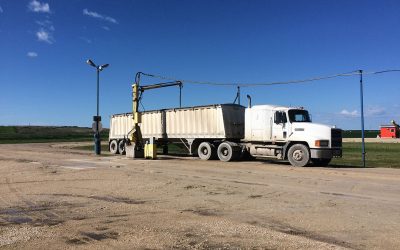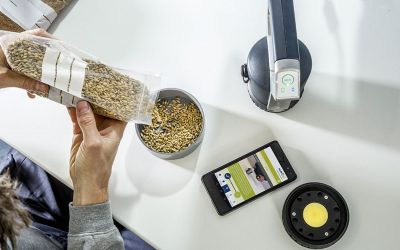Felleskjøpet Agri produces according to EU rules
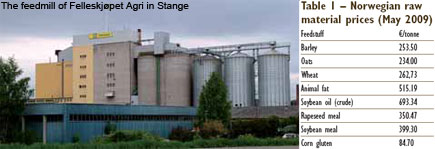
Agricultural purchasing and marketing co-op Felleskjøpet Agri has a dominant place in the Norwegian animal feed business. It is the world’s most geographically dispersed cooperative. Despite the fact that Norway is not a member of the EU, Felleskjøpet Agri strictly follows EU regulations in agriculture and beyond.
The establishment of farm co-operatives, – member-owned organisations that maximise membership benefits, has been a very common practice in Norway. Currently 50,000 farmers in Norway own these co-ops, accounting for an annual turnover of roughly NOK 58 billion (€6.6 billion). Felleskjøpet consists of three regional co-operatives: Felleskjøpet Agri (FKA) Felleskjøpet Rogaland Agder (FKRA), and Felleskjøpet Nordmøre og Romsdal (FKNR). Collectively, the regional co-operatives have an annual turnover of approximately NOK 15 billion (€1.7 billion) and a membership of about 53,000. Felleskjøpet Agri is the largest purchasing co-op, and the third-largest farm co-op organisation. FKA’s primary activity is the production of compound feed and has a market share of more than 60%. Feed sales account for 30% (950,000 tonnes) of FKA’s total operating revenues. The cooperative operates 97 shops, 57 grain depots, 47 workshops and 15 feedmills and cooperates closely with local mills. FKA produces feed concentrates for ruminants, swine, poultry, horses, fur-bearing animals, dogs and cats. Furthermore it has almost 50 subsidiaries and with annual sales of app. NOK 10 billion (€1.14 billion) makes it one of Norway’s largest companies.
Grain trading
Norwegian grain, mainly barley, is the major ingredient in Norwegian feed. FKA is Norway’s largest grain buyer, and receives about 50% of the Norwegian grain through its own facilities and partner mills. Norske Felleskjøp (Norwegian cooperatives) have on behalf of the government and the Norwegian farmers, the responsibility to regulate the Norwegian grain market. The main purpose of this regime is to secure farmers the price agreed in the agricultural negotiations. FKA’s other activities include farm implements, commercial fertiliser, seed grains, pesticides and silage inoculents. Norske Felleskjøp is also the collective enterprise that safeguards the organisational and industrial policy interests of the co-operatives.
Long distances
FKA has operations from Tana in the north to Lillesand in the south of the country – a distance of more than 3,000 km. “It can take up to four days before a truck is back from a delivery to a farm in the north,” says Vebjørn Nilsen, process manager at FKA in Stange, some 120 km north of Oslo. The mill in Stange mainly produces cattle feed, although there are relatively few cattle in the area. Because of its “economical isolation” Norway has its agriculture strictly regulated. An average dairy farm holds 20 cows, a pig farm is maximised to 100 sows and 2,000 fatteners. A poultry farm may hold a maximum of 120,000 broilers or 7,500 layers. Due to these relatively low numbers farmers often work together to create some scale of importance.
Feed quality and costs
There are strict regulations on feed quality. All protein sources are non-GMO and FKA supplies its farmers with guaranteed salmonella free feeds. To establish this the feed mills are equipped with Bühler Hysys heat treatment systems of Kahl expanders. Of course these systems limit maximum throughput in the mills. “That is why we have put strict control measures in our mills,” explains Nilsen. “Labour costs are high and we try to automate as much as possible. Recently we installed Spektron Feed from Norwegian company Prediktor, to do online NIR-sampling. With this system we can in real time analyse the feed making process from raw materials to final product.”
A photo gallery of the mill in Stange can be found on www.AllAboutFeed.net/photo-gallery




